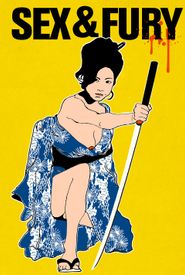Reiko Ike's foray into the entertainment industry commenced at a remarkably young age, with her discovery by Japan's renowned Toei Studios shrouded in an air of mystery. Some accounts suggest that her talent scouts were drawn to her captivating presence in a nightclub, while others propose that she was initially spotted showcasing her modeling skills. Regardless of the exact circumstances, it is clear that Ike's introduction to the industry marked the beginning of a remarkable journey that would span several decades.
As she entered her early twenties, Ike found herself alongside Miki Sugimoto, becoming Toei's most prominent sex star throughout the 1970s. The two actresses played a pivotal role in the rise of the "sukeban" or female girl boss phenomenon that captivated Japanese cinema during that decade. Ike's portrayal of strong, confident, and charismatic female characters helped to cement her status as a household name, and her impact on the industry was undeniable.
Ike's extensive filmography, which stretched across a considerable period of time, boasts a remarkable total of 12 cinematic productions, with the majority of her work falling within the Pinky Violence and Yakuza Girl genres.
Throughout this decade-long tenure in the entertainment industry, Ike faced numerous personal challenges, including encounters with the law due to her struggles with drug use and illegal gambling.
Despite these obstacles, Ike persevered, continuing to work consistently throughout the decade. Her impressive filmography features appearances in at least two films from the esteemed "Battles Without Honor & Humanity" series directed by the renowned Kinji Fukasaku.
During this specific timeframe, a significant proportion of her professional endeavors were devoted to collaborations with Toei, a trend that reached a crescendo in 1973, when she featured in a remarkable succession of films, including the provocative "Sex & Fury", the empowering "Girl Boss", the chilling "Terrifying Girls' High School: Lynch Law Classroom", the intense "Criminal Woman: Killing Melody", and the sequel to the aforementioned "Sex & Fury", namely "Female Yakuza Tale: Inquisition and Torture".
Throughout this remarkable era, she solidified her reputation as a prominent and influential sex symbol within the Japanese entertainment industry, garnering widespread attention and admiration.
As her star continued to rise, she found herself at the center of a highly publicized feud with fellow Toei actress Miki Sugimoto, with whom she shared the screen in several notable films.
The devoted fan base of the enigmatic Ike, a renowned figure in the realm of cinema, has undergone a significant resurgence in recent years, primarily attributed to the re-release of a select few of her most iconic films. These re-releases have included the critically acclaimed "Sex & Fury", as well as the equally acclaimed "Female Yakuza Tale". Additionally, the release of a comprehensive Pinky Violence box set has further fueled the renewed interest in Ike's work, featuring an array of her most notable films, including the cult classic "Terrifying Girls School", the provocative "Criminal Woman", and the action-packed "Girl Boss Guerilla".


























